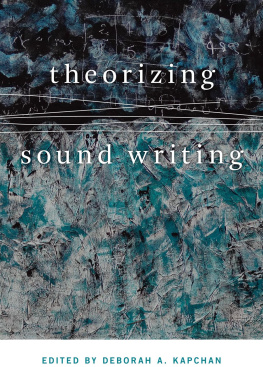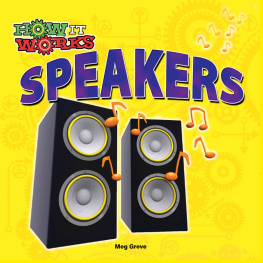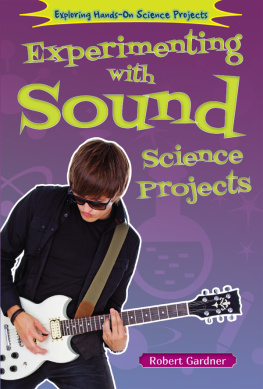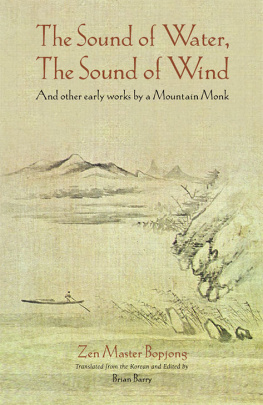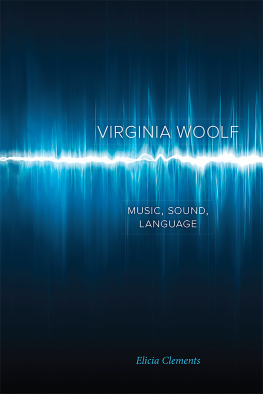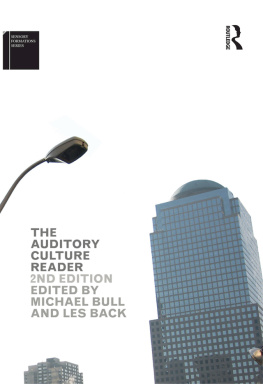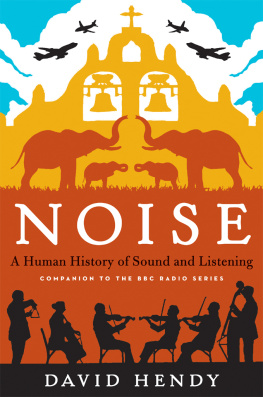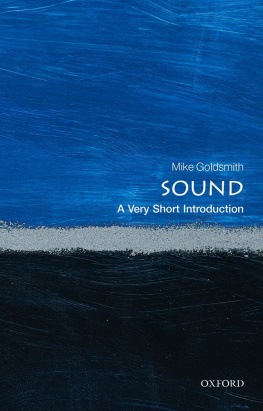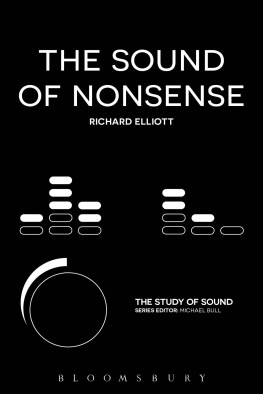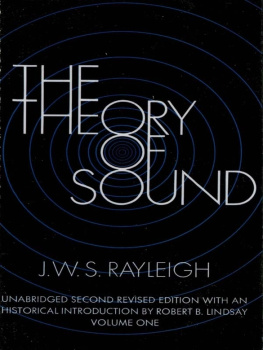
Theorizing Sound Writing
Edited by Deborah Kapchan
THEORIZING SOUND WRITING
Wesleyan University Press Middletown, Connecticut
Wesleyan University Press
Middletown CT 06459
www.wesleyan.edu/wespress
2017 Wesleyan University Press
All rights reserved
Manufactured in the United States of America
Designed by Mindy Basinger Hill
Typeset in Minion Pro
Library of Congress Cataloging-in-Publication Data
NAMES: Kapchan, Deborah A. (Deborah Anne)
TITLE: Theorizing sound writing / edited by Deborah Kapchan.
DESCRIPTION: Middletown, Connecticut : Wesleyan University Press, [2017] |
Series: Music/culture | Includes bibliographical references and index.
IDENTIFIERS: LCCN 2016030957 (print) | LCCN 2016038984 (ebook) |
ISBN 9780819576644 (cloth : alk. paper) | ISBN 9780819576651 (pbk. : alk. paper) | ISBN 9780819576668 (ebook)
SUBJECTS: LCSH: Musicology. | Ethnomusicology. | Sound (Philosophy)
CLASSIFICATION: LCC ML3797 .T46 2017 (print) | LCC ML3797 (ebook) | DDC 780.72dc23
LC record available at https://lccn.loc.gov/2016030957
5 4 3 2 1
Cover illustration: Fatma Benkirane.
CONTENTS
Acknowledgments
The original idea for this volume was inspired by my reading of a special issue of the journal Anthropology and Humanism, entitled The Art of Ethnography: Narrative Style as a Research Method. Edited by Russell Sharman, the writers in this issue (who included Paul Stoller, Kirin Narayan, Ruth Behar, and Edith Turner, among others) began from a simple premise: style creates knowledge. They didnt put it that simply; however, their volume brought attention to the fact that the way we writethe genres and styles we employis in fact a mode of world making. Of course, Bakhtin said as much, as have others. The authors in this volume, however, sought to raise the bar for academic, and in particular, ethnographic writing, while at the same time questioning the relation of style to method. Most of the authors were relating the method of embodied ethnography to styles of writing, making analogies between the two orders of mediation. However, this inspired me to think of the implications of writing style as a method itself. And to take it further, to reconsider the relation and limits of sound and writing, sound method and sound theory. Whats more, I was interested in how sonic forms of knowledge might transform pedagogies in the academy.
Before it was a volume, Theorizing Sound Writing was a double roundtable event at the Society for Ethnomusicology meetings in Mexico City in 2009. The response was enthusiastic, and in the spring of 2010, my then colleague Jason Stanyek and I applied for funding from the New York University Humanities Center, which subsequently provided support for two years of fructuous meetings with colleagues and advanced graduate students from New York University, Columbia University, University of Pennsylvania and the City University of New York Graduate Center. I thank Jane Tylus, the director of the center, and Aysa Berger, for providing the forum for such rich discussions during two years. Jason Stanyek, my colleague in the Music Department, co-directed this working group. His mark in the volume is indelible as are the ideas spawned by the collective. He has been an ideal colleague, friend and collaborator, and we sorely miss him now that he has taken his new position at Oxford University. I feel privileged to have had the chance to work with him. My colleague Martin Daughtry and I subsequently collaborated on a graduate seminar called The Politics of Listening in the spring of 2013. The energy and ideas generated in that class (and in hours of discussion as Martin and I walked to and from our respective sons elementary school) enriched my life beyond what words can describe and continue to do so.
I also extend my thanks to all the participants in the Theorizing Sound working group, composed of colleagues and advanced graduate students from across disciplines and universities. I am not exaggerating when I say that our meetings have been some of the most stimulating experiences of my career. Thinking with, rather than against, such brilliant minds around the table has been a tremendous honor. In particular, I give heartfelt thanks to my inspiring students (many now colleagues), Ana Chavez, Serap Erincin, Ana Pais, Alex Waterman and Charmy Wells for volunteering their time and energy with such care and enthusiasm.
Theorizing Sound Writing
DEBORAH KAPCHAN
The Splash of Icarus
Theorizing Sound Writing / Writing Sound Theory
The zendo is on the eleventh floor of a loft on south Broadway, in a long rectangular room fitted with black meditation pads and cushions on polished wood floors. Gongs, metallic bowls, and wooden blocks sound periodically as we sit, listening. The back windows look over the lower East Side of Manhattan. In May they are open to the sounds of New York: trucks accelerating, car horns, sirens, objects being lifted and released onto loading docksthe clangs and reverberations of mechanical urban life. And with them, birds sing, perched precariously on roof garden trees on their way back north.
Sitting here, I taste my body the way a baby tastes itself, before it is encumbered with awareness of its skin ego and its image. I swallow the saliva as it gathers in my mouth. I hear the sound of the muscles in my throat, in my jaw and ears, as the saliva passes from my head, down my trachea to my stomach. I hear through myself, through bone and liquid being.
This taste, this sound, moves in and out of my lungs, as oxygen and water mix, releasing recessive thoughts, images, and desires into the present moment, where they only ever live.
But what hears? Not just my ears. For sounds touch and resonate throughout my body. And why my body, my ears? Bone and liquid claim no ownership. Yet the site where sound touches fleshthe bodybecomes a magnet for memories, an assembly of cells, of selves imagining themselves a unity, an author, a faithful student of sound knowledge.
Sound knowledgea nondiscursive form of affective transmission resulting from acts of listening.
Sound writinga performance in word-sound of such knowledge. Not a representation. Not just an intersemiotic translation. Sound writing is a gong resonating through bodies, sentient and non.
WRITING SOUND THEORY
The essays in this volume respond to one simple but essential question: how theorize sound writing? In order to answer that question, we review basic definitionsof theory, method, listening, and genrereturning ultimately to the technology of writing sound as a method that employs sound knowledge in speculative inquiry. Sound knowledgedefined here as a nondiscursive form of affective transmission resulting from acts of listeningis a subtext in this volume. What promise does sound knowledge hold for cultural analysis? How might we not only write sound but sound theory differently?
Jacques Attali set the stage for these questions in 1977, when he presciently noted that no theorizing accomplished through language or mathematics can suffice any longer; it is incapable of accounting for what is essential in timethe qualitative and the fluid, threats and violence. It is thus necessary to imagine radically new theoretical forms, in order to speak to new realities. Almost thirty years later, social theorist Lauren Berlant reiterates this call, attending to the persistent need to invent new genres for the kind of speculative work we call theory (2006, 21).
Speculative comes from the Latin root, speculatio, meaning observation, contemplation, and like the word theory itself (from the Greek,
Next page
